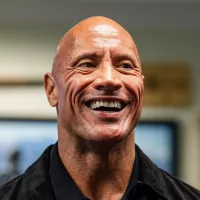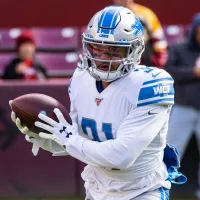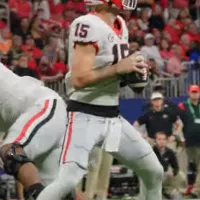Pokémon Go is a 2016 augmented reality mobile game for iOS and Android devices developed by Niantic in collaboration with Nintendo and The Pokémon Company. The game utilizes GPS to allow players to capture, train, and battle Pokémon in real-world locations. It operates on a free-to-play, freemium model, offering in-app purchases for items and hosting remote and live events. The game launched with approximately 150 Pokémon species, with more being added over time, and merges gaming with location-based experiences and local advertising.
1990: Nintendo's Stock Decline
On July 25, Nintendo's stock experienced its largest single-day decline since 1990, falling by 18 percent. This equated to a ¥708 billion ($6.7 billion USD) loss in market value after clarification that the company did not produce Pokémon Go nor had tangible financial gains from it.
2001: Fatwa Banning Pokémon Card Game Influences Views on Pokémon Go
In 2001, a fatwa banning the Pokémon card game as a form of gambling influenced later rulings on Pokémon Go, with religious leaders expressing concerns about the game's implications.
2014: Pokémon GO Concept Conceived
In 2014, Satoru Iwata of Nintendo and Tsunekazu Ishihara of The Pokémon Company conceived the concept of Pokémon GO as an April Fools' Day collaboration with Google, called the Google Maps: Pokémon Challenge. Ishihara saw Niantic's Ingress as a perfect match for the Pokémon series.
2015: Niantic Becomes Independent Company
In 2015, Niantic was spun off from Google as an independent company following the company reorganization into Alphabet Inc.
2015: Ishihara Dedicates Speech to Iwata
In 2015, at the game's announcement on September 10, Ishihara dedicated his speech to Iwata, who had died two months prior. Tatsuo Nomura became Director and Product Manager, Junichi Masuda wrote the soundtrack, and Dennis Hwang was among the graphic designers.
March 4, 2016: Japan-Exclusive Beta Test Announced
On March 4, 2016, Niantic announced a Japan-exclusive beta test for Pokémon GO would start later that month, allowing player assistance with testing and improvement.
May 16, 2016: Field Test Signups Opened in the United States
On May 16, 2016, the signups for the field test were opened to the United States for Pokémon GO.
June 30, 2016: Beta Test Concluded
The beta test for Pokémon GO concluded on June 30, 2016.
July 6, 2016: Official Launch Begins
The official launch of Pokémon GO began on July 6, 2016, with releases in Australia, New Zealand, and the United States.
July 15, 2016: Peak Usage of Pokémon Go in the United States
Usage of Pokémon Go in the United States peaked on July 15, 2016. By mid-September, the game had lost 79 percent of its players in the country.
July 2016: Pokémon Go's Revenue and Usage in July 2016
By the end of July 2016, Pokémon Go had accumulated more than $160 million USD through in-game purchases. App Annie reported that the game generated approximately $10 million in revenue every day throughout the month. Average daily usage on Android devices exceeded that of major apps like Snapchat, Tinder, Twitter, Instagram, and Facebook.
July 2016: Police Incidents Reported in the UK Due to Pokémon Go
In July 2016, 290 police incidents were reported in the United Kingdom due to Pokémon Go.
July 2016: Pokémon Go Mentions in Politics and Pop Culture in July 2016
In July 2016, Eduardo Paes, the mayor of Rio de Janeiro, hoped Pokémon Go would be released in Brazil before the Summer Olympics. United States presidential candidates Donald Trump and Hillary Clinton mentioned the app during their election campaigns. Also, the President of Italy, Sergio Mattarella, compared a political issue to the hunt for Pokémon. Bellator mixed martial artist Michael Page celebrated a knockout by referencing Pokémon.
July 2016: European Releases Begin and Japanese Launch Delayed
In July 2016, European releases of Pokémon GO began on July 13, and the game became available to most of the continent over the following ten days. The Japanese launch, initially reported to be on July 20, was delayed after a sponsorship deal with McDonald's was leaked, instead releasing two days later.
July 2016: Glitches in Pokémon Go
In mid-July 2016, Pokémon Go experienced glitches, including the "three-step-glitch" which rendered the tracking feature useless. Niantic later removed the footstep feature completely on July 30. Some Legendary Pokémon were also obtained by players in a glitch, but they were later removed to maintain game fairness.
July 17, 2016: Fake Pokémon Go Apps Found Containing Malware
According to RiskIQ, at least 215 fake versions of Pokémon Go were available by July 17, 2016. Several of these fake apps contained malicious programming and viruses.
July 22, 2016: Launch of Pokévision to Locate Pokémon
Launched on July 22, 2016, Pokévision enabled players to find exactly where Pokémon spawned and how much time there was until they despawned; the site used data hacked directly from the game.
August 6, 2016: Official Launch in Taiwan
Following its launch on August 6, 2016, Pokémon GO became extremely popular in Taiwan due to the country's high degree of urbanization. Chen Ching-Po became notable as "Uncle Pokémon" for rigging seventy-two smartphones to his bicycle.
August 11, 2016: First Reported Death in Southeast Asia Related to Pokémon Go
On August 11, 2016, a young girl in Cambodia was reportedly killed after being hit by a car while trying to capture a Pokémon located on a road.
August 12, 2016: Pokémon Go Revenue in U.S., British, and German Markets
By August 12, 2016, Pokémon Go had generated $268 million in revenue after five weeks, counting only the U.S., British, and German markets, according to the Financial Times.
August 2016: Pokémon Go's Guinness World Records
In August 2016, Pokémon Go was awarded five Guinness World Records, including most revenue grossed by a mobile game in its first month ($206.5 million USD) and most downloaded mobile game in its first month (130 million downloads).
August 2016: First Death in Japan Attributed to Pokémon Go
In late August 2016, the first death in Japan attributed to Pokémon Go occurred when a distracted driver playing the game killed one woman and badly injured another.
September 2, 2016: Pokémon Go's Global Revenue
By September 2, 2016, Pokémon Go had generated more than $440 million in global revenue, according to Sensor Tower.
September 2016: Pokémon Go's Downloads and Revenue Milestones
By September 2016, Pokémon Go had been downloaded over 500 million times worldwide and became the fastest game to generate $500 million in revenue. It was also awarded the App Store's breakout hit of 2016 and was the most searched game on Google in 2016.
September 2016: Hanke Hints at Player vs. Player Battles
In September 2016, John Hanke hinted in an interview with TechCrunch that player vs. player Pokémon battles would be made available in a future update for Pokémon GO.
September 2016: "Buddy Pokémon" and Anti-Cheating Measures Introduced
In September 2016, Niantic introduced the "Buddy Pokémon" feature, allowing players to select a Pokémon to accompany their avatar and earn bonuses. This feature was released later that month. In the same update, Niantic implemented measures to prevent players with rooted or jailbroken devices from logging into the game in an attempt to reduce cheating.
September 2016: Niantic Stops Supporting CyanogenMod
In September 2016, Niantic stopped supporting the CyanogenMod mobile operating system, preventing users on that platform from playing the game.
September 2016: Release in the Balkans, Macau, and Central Asia
In September 2016, Pokémon GO was released in the Balkans, Macau, and Central Asia.
September 2016: Video Blogger Arrested for Playing Pokémon Go in Church
In September 2016, Ruslan Sokolovsky, a video blogger, was arrested in Russia for playing Pokémon Go at the Church of All Saints in Yekaterinburg, later receiving a suspended sentence for blasphemy.
September 16, 2016: Pokémon Go Plus Released
On September 16, 2016, the Pokémon Go Plus, a Bluetooth Low Energy wearable device, was released in the United Kingdom and North America. It allows players to perform certain actions in the game without looking at their smart device.
October 2016: Halloween-Themed Event Boosts Revenue
In October 2016, Niantic released a Halloween-themed event in Pokémon Go, which resulted in a surge in revenue up to 133 percent, placing the game back at the top of the leaderboard of highest grossing apps.
December 2016: Starbucks and Sprint Collaborate with Nintendo
In December 2016, coffeehouse chain Starbucks and telecommunications company Sprint collaborated with Nintendo to add PokéStops and gyms at certain locations throughout the United States for Pokémon GO. The same month, a companion app for Apple Watch devices was released.
![Apple Watch Series 10 [GPS 46mm case] Smartwatch with Jet Black Aluminium Case with Black Sport Band - M/L. Fitness Tracker, ECG App, Always-On Retina Display, Water Resistant Apple Watch Series 10 [GPS 46mm case] Smartwatch with Jet Black Aluminium Case with Black Sport Band - M/L. Fitness Tracker, ECG App, Always-On Retina Display, Water Resistant](https://m.media-amazon.com/images/I/31Cud2WnszL._SL500_.jpg)
2016: Pokémon Go Revenue in 2020 Exceeds 2016 Revenue
During 2020, the game's revenue was the highest in its history, exceeding even its 2016 revenue.
2016: Server Outages and Apology at San Diego Comic-Con 2016
In 2016, Pokémon Go faced frequent server outages after launch due to heavy usage, surpassing expectations within 15 minutes of release in Australia and New Zealand. The server traffic peaked at fifty times the expected amount. John Hanke apologized for the server issues at the 2016 San Diego Comic-Con, admitting they were not prepared for the scale of the game's popularity.
2016: Initial Reception and Popularity
In 2016, Pokémon Go received mixed reviews, with praise for its concept and criticism for technical issues. The game became one of the most popular and profitable mobile apps, reaching over 500 million downloads worldwide by the end of the year. It also popularized location-based and AR technology, promoting physical and social activity. However, there were also concerns about accidents and public nuisances caused by the game. Additionally, some governments raised security concerns, leading to regulations in certain countries.
2016: Pokémon Go Popularizes AR, Praised for Genderfluid Options, and Impacts Individuals with Autism
In 2016, Pokémon Go was credited for popularizing Augmented Reality (AR). The game was also praised by genderfluid groups for offering players a "style" choice instead of "gender" options, and had a positive impact on individuals with autism. Additionally, the game's release led to increased popularity of the "Pokémon Theme" song and viewership of Pokémon series and films.
2016: Resurgence in Pokémon Franchise Popularity Due to Pokémon Go
In 2016, Pokémon Go's release led to a resurgence in popularity for the Pokémon franchise as a whole. The Pokémon Sun and Moon games for the Nintendo 3DS became the best-selling video game for the 3DS, partly due to new fans brought in by Pokémon Go.
2016: Initial Release
In 2016, Pokémon Go, an augmented reality mobile game, was developed and released through a collaboration with Nintendo and The Pokémon Company for iOS and Android devices. The game uses GPS to simulate the player's location and allows players to find, catch, train, and fight Pokémon. It is free-to-play, but uses a freemium business model that supports in-app purchases.
2016: "Pokémon Go in Syria" Photography Series by Khaled Akil
In 2016, Syrian artist Khaled Akil published "Pokémon Go in Syria," a photography series placing Pokémon characters in destroyed Syrian streets as a reminder of the war, which went viral and was exhibited in various locations.
2016: Restrictions and Bans on Pokémon Go in Southeast Asia
In 2016, during Thailand's constitutional referendum polling, Pokémon Go players were told to refrain from entering polling stations. Some countries in Southeast Asia began to restrict or ban the game, with concerns ranging from safety to security. The Philippines banned the game in all administration offices and Employers in Malaysia fired their staff for playing the game during working hours.
2016: Pokémon Go active Players
In May 2018, Pokémon Go grossed $104 million in monthly revenue and had 147 million monthly active players, its highest since Summer 2016.
January 2017: Shooting Death of Jiansheng Chen While Playing Pokémon Go
In January 2017, Chinese-American civilian Jiansheng Chen was shot dead while playing Pokémon Go.
January 2017: More Starbucks Locations Become Gyms
In January 2017, five thousand more Starbucks locations became available as Gyms in Pokémon GO.
January 2017: Official Release in South Korea
Pokémon GO was officially released in South Korea in January 2017, following an initial period where it was unofficially playable in certain areas due to a glitch.
February 2017: Pokémon Go Wins Crunchies Award and Reaches Download and Revenue Milestones
In February 2017, Pokémon Go was awarded the best app at the Crunchies award event. By the same month, the game had been downloaded more than 650 million times globally, with a reported $1 billion in revenue, becoming the fastest mobile game ever to reach this milestone.
February 2017: Second Generation Pokémon Introduced
In February 2017, an update was published for Pokémon GO, introducing 100 species situated in the Johto region from the second generation of the core Pokémon series, which were added alongside the original 151. The update also included the addition of new Berries, new Pokémon encounter mechanics, and an expanded selection of avatar clothing options.
March 2017: Nintendo's Plans for Smartphone App Games
By March 2017, Nintendo planned to release four more smartphone app games. Investors noted that Pokémon Go demonstrated Nintendo's valuable character intellectual property, including franchises like Super Mario, The Legend of Zelda, and Metroid.
May 2017: First Official Niantic Live Event Held in Charlotte
In May 2017, the first live event officially held by Niantic was held in Charlotte, North Carolina.
June 2017: Pokémon Go Surpasses 750 Million Downloads
By June 2017, Pokémon Go had been downloaded more than 750 million times, with an estimated revenue of $1.2 billion according to Apptopia.
June 2017: Gyms Game Mechanics Revamp
In June 2017, Niantic announced that Gyms' game mechanics would be revamped for a more teamwork-oriented experience. The new Gyms were made available a few days later with the next application update. As of the update, Gyms included a spinnable component (PokéStop), a cap of six Pokémon, coins earned according to the duration that the defending Pokémon survived in a Gym, and restrictions on Legendary, Mythical and Buddy Pokémon being placed in Gyms.
June 19, 2017: Gyms Disabled for Revamp
On June 19, 2017, Gyms were disabled in Pokémon Go in preparation for a revamp of their game mechanics.
July 2017: Pokémon Go Anniversary Event in Chicago Plagued by Issues
In July 2017, Niantic held a community event in Grant Park, Chicago, for the game's first anniversary. The event suffered from connectivity issues and crashes due to localized cellular activity. Niantic refunded ticket holders and provided $100 in-game currency. A lawsuit was filed by attendees seeking travel reimbursement.
July 2017: Introduction of Raid Battles
In July 2017, Raid Battles were introduced to Pokémon Go. Raid Battles consist of players battling an over-leveled Pokémon located in a Gym. If the Pokémon is defeated, the players gain the opportunity to catch a regular version of it. Raid difficulties range from 1 to 5, with 1 being the least challenging and 5 representing the most challenging. Level 5 raids are exclusive to Legendary Pokémon.
July 22, 2017: Release of Articuno and Lugia
On July 22, 2017, after the Go Fest, Articuno and Lugia, the first Legendary Pokémon, were released in Raid Battles.
September 2017: Safari Zone Events Held in Europe
In September 2017, a series of "Safari Zone" events were held in Unibail-Rodamco shopping centers in Oberhausen, Paris and Barcelona.
November 27, 2017: Ho-Oh Appears in Raid Battles
From November 27, 2017, to December 12, 2017, the Legendary Pokémon Ho-Oh appeared in Raid Battles.
December 12, 2017: Ho-Oh Departs from Raid Battles
From November 27, 2017, to December 12, 2017, the Legendary Pokémon Ho-Oh appeared in Raid Battles. After its departure, new raids were made available.
December 2017: First Legendary Pokémon Release
In December 2017, Groudon was released, becoming the first Legendary Pokémon introduced to Pokémon Go.
December 2017: OpenStreetMap Data Integrated
Since December 2017, Pokémon Go integrated map display from OpenStreetMap.
2017: Pokémon Go Ranked Among Highest Grossing Mobile Games of 2017
In 2017, Pokémon Go was ranked as the 9th highest grossing mobile game with $890 million in annual revenue. By late 2017, it was estimated to have generated up to $2 billion in total revenue.
January 2018: Niantic Announces Monthly Community Day Event
In January 2018, Niantic announced a monthly Community Day event. This aimed to encourage players to meet up in their local areas and featured increased spawns of a particular Pokémon, exclusive moves, and bonuses.
January 20, 2018: First Community Day
On January 20, 2018, Pokémon Go hosted its first Community Day, a monthly event featuring increased spawn rates for a featured Pokémon, an exclusive attack for its final evolution if evolved during the event, and an increased chance of catching the featured Pokémon's Shiny version. The first Community Day featured Pikachu with the exclusive attack Surf if evolved to Raichu during the event.
May 2018: Pokémon Go's Monthly Revenue and Active Players in May 2018
In May 2018, Pokémon Go grossed $104 million in monthly revenue and had 147 million monthly active players, the highest since Summer 2016.
May 2018: Pokémon Go Reaches 800 Million Downloads Worldwide
In May 2018, The Pokémon Company announced that Pokémon Go had reached over 800 million downloads worldwide.
July 2018: Pokémon Go as Top-Grossing Mobile App of July 2018
In July 2018, Pokémon Go was the top-grossing mobile app of the month.
September 11, 2018: Game Appears in Russia's App Store and Google Play Store
On September 11, 2018, Pokémon GO appeared in Russia's App Store and Google Play Store over two years after the first launch. Niantic did not officially announce this release.
September 2018: Pokémon Go Grosses Over $2 Billion From In-App Purchases by September 2018
Apptopia reported that, by September 2018, Pokémon Go had grossed over $2 billion from in-app purchases.
October 10, 2018: Plans to Introduce Pokémon from Diamond and Pearl Announced
On October 10, 2018, The Pokémon Company and Niantic announced plans to introduce Pokémon from Diamond and Pearl into Pokémon Go.
November 2018: Pokémon: Let's Go, Pikachu! and Let's Go, Eevee! Released
In November 2018, Pokémon: Let's Go, Pikachu! and Let's Go, Eevee!, a game developed by Game Freak and heavily inspired by Pokémon Go, was released on the Nintendo Switch. This game features Pokémon Go style catching with Joy-Con and integration between the two games.
December 2018: Trainer Battles (PvP) Added
In December 2018, Niantic added player vs player (PvP) Trainer Battles to Pokémon Go.
2018: Go Becomes the Game Initially Envisioned
According to John Hanke, 2018 saw Pokémon GO become the game initially envisioned by Niantic.
2018: Active User Base
By May of 2018, Pokémon Go had over 147 million monthly active users.
2018: IGN names Pokémon Go one of the best video games of all time
In 2018, IGN named Pokémon Go as the 100th best video game of all time, praising its promotion of physical exercise.
January 2019: Hanke Reflects on 2018 Progress
In a January 2019 interview with Business Insider, John Hanke reflected that 2018 saw Pokémon GO become the game initially envisioned by Niantic.
February 2019: Pokémon Go Exceeds 1 Billion Downloads Worldwide
As of February 2019, Pokémon Go exceeded 1 billion downloads worldwide.
July 2019: Team GO Rocket Battles Introduced
In July 2019, Team GO Rocket battles were introduced. Team GO Rocket NPCs could be fought at certain PokéStops or in Team GO Rocket Balloons. Players had the opportunity to capture "Shadow Pokémon" after victory, and they can choose to purify them.
September 2019: Unova Region Pokémon Release
In September 2019, Unova region Pokémon and the Unova Stone item were released in Pokémon Go.
November 2019: Release of Official Pokémon Go Merchandise
In November 2019, an official line of Pokémon Go merchandise was released.
2019: Pokémon Go Earns $1.4 Billion in 2019
In 2019 alone, Pokémon Go earned $1.4 billion, according to Superdata Research, and live events earned $249 million in tourism revenue during 2019.
2019: One Billion Downloads
In early 2019, Pokémon Go reached over one billion downloads worldwide.
2019: Player-Submitted Locations
Since 2019, Pokémon Go has included player submissions for PokéStop and Gym locations, which are reviewed by a significant number of other players.
January 2020: GO Battle League Launched
In January 2020, Niantic launched an online battle format, GO Battle League, which allows players to compete against other players worldwide, without physical proximity requirements.
August 2020: Rise in Monthly Active Users during the Pandemic
Between January and August 2020, the number of monthly active users of Pokémon Go rose by 45 percent despite restrictions due to the COVID-19 pandemic.
August 2020: Mega Evolution Introduction
In August 2020, Mega Evolution arrived in Pokémon Go, initially with four different Pokémon able to Mega Evolve into five different forms. The feature has since expanded to include 40 forms.
August 2020: Mega Raids Arrive
In August 2020, level 3 Mega raids arrived with the introduction of Mega Evolution. Level 2 and 4 raids were merged into Level 1 and 3 raids at the same time.
November 2020: Pokémon Go Accumulates Nearly 600 Million Unique Installs and Generates $4.2 Billion
According to Sensor Tower in November 2020, Pokémon Go had accumulated nearly 600 million unique installs and generated almost $4.2 billion in revenue from in-game purchases.
November 30, 2020: Level Cap Increase
On November 30, 2020, the maximum player level in Pokémon Go was increased from level 40 to level 50.
December 2020: Pokémon Go as Top-Grossing Mobile Game of December 2020
Pokémon Go was the top-grossing mobile game of December 2020.
2020: Unplayable in Most Parts of China
As of 2020, Pokémon GO is still unplayable in most parts of mainland China due to Google services being blocked and GPS modules being blocked in-game.
2020: Revenue Milestone
By 2020, Pokémon Go had earned more than $6 billion in revenue.
2020: Impact of COVID-19 on Pokémon Go and Revenue in 2020
During 2020, Niantic implemented new features to allow players to play Pokémon Go from inside their homes due to the COVID-19 pandemic, which increased its player-base. The game's revenue in 2020 was the highest in its history, exceeding even its 2016 revenue, generating more than $1 billion in the first 10 months. It was also one of the top five highest-grossing games of 2020, with an annual revenue of $1.92 billion.
2020: Gameplay Changes Due to COVID-19 Pandemic
In 2020, Niantic made major changes to Pokémon GO gameplay mechanisms due to the COVID-19 pandemic, including indoor step tracking, long-distance PVP battles, increased "incense" effectiveness, increased spawn points, and a doubled player radius.
July 2021: Removal of Gym at Bagram Airforce Base
In July 2021, a Pokémon Gym located at Bagram Airforce Base was removed after the U.S. forces abandoned the base.
August 1, 2021: Niantic Begins Rolling Back COVID-19 Pandemic Bonuses
Starting on August 1, 2021, Niantic began rolling back changes and new features in the game which allowed players to easily play remotely as part of its Exploration Bonus Updates. The reverting of safety measures, like increased gym and Pokéstop interaction distances, resulted in criticism from players, including top players Brandon Tan and Nick Oyzon.
August 2021: Player Boycott of Pokémon Go Due to Rollback of Pandemic Bonuses
In August 2021, players began boycotting Pokémon Go in response to Niantic's decision to rollback safety measures implemented during the COVID-19 pandemic, despite increasing rates of the SARS-CoV-2 Delta variant.
August 26, 2021: Interaction distance for PokéStops and Gyms reinstated
On August 26, 2021, the interaction distance for PokéStops and Gyms was reinstated as the baseline radius. This distance was doubled from 40 meters to 80 meters at the onset of the pandemic and has now become a permanent change.
October 2021: Pokémon GO Championship Series Announced
In October 2021, it was announced that Pokémon GO would be added during the 2022 World Championships. A qualification system titled the Pokémon GO Championship Series was announced.
2021: Pokémon Go Generates $641.6 Million in First Half of 2021
Pokémon Go generated a further $641.6 million in the first half of 2021.
May 2022: Mega Legendary Pokémon in Raids
In May 2022, Mega Legendary Pokémon were added to Raid Battles, with these raids being turned to 6 stars, the highest in the game currently. The Pokémon included in these Raids were Mega Latias and Mega Latios.
October 2022: Introduction of Elite Raids
In October 2022, a new form of raid battles called "Elite Raids" were introduced to Pokémon Go. Elite Raids can only be battled in person, take a full day to begin, and are extremely challenging.
2022: Pokémon GO at the World Championships
In 2022, Pokémon GO was included during the World Championships.
May 2023: Introduction of Shadow Raids
In May 2023, a new form of raid battles named "Shadow Raids" were introduced. Shadow Raids can be battled in person and remotely. They award the opportunity to capture a Shadow Pokémon after being defeated. During the battle, the Pokémon may become "enraged", increasing both its attack and defense, but can be reverted to normal using a "Purified Gem".
July 14, 2023: Pokémon Go Plus + Released
On July 14, 2023, the Pokémon Go Plus + was released as the successor to the Pokémon Go Plus. The Plus + added the ability to automatically catch Pokémon and interact with Pokéstops along with sleep tracking features to be used with Pokémon Sleep.
2023: Pokémon GO at the World Championships
In 2023, Pokémon GO returned in the World Championships.
April 2024: Avatar Customization Update and Criticism
In April 2024, an update to Pokémon GO allowed for more flexible avatar customization, including new hairstyles, body size adjustments, and skin tone variations. This update received criticism from players, citing lower-quality graphics compared to previous models and interference with cosmetic items that had been purchased.
September 2024: Dynamax Battles and Dynamax Pokémon Introduced
In September 2024, Pokémon GO introduced Dynamax Battles and Dynamax Pokémon, mechanics from Pokémon Sword and Shield. Players can battle in-person or remotely, using "MP" currency to join. Up to four players fight a Dynamax Pokémon, filling a meter to Dynamax or Gigantamax their own Pokémon. Max Moves deal increased damage, and players can use Max Guard or Max Spirit. Only specific Pokémon can participate and be obtained in Dynamax form.
October 2024: Gigantamax Battles Debut
In October 2024, Gigantamax Battles debuted in Pokémon GO, similar to Dynamax battles but allowing up to 100 players in teams of four. As with Dynamax, only specific Pokémon caught from Gigantamax Battles can transform.
2024: Pokémon GO at the World Championships
In 2024, Pokémon GO returned in the World Championships.
February 11, 2025: Pokémon Count Update
As of February 11, 2025, there are 884 Pokémon (including regional variants) available in the game from a total of 1,025 within the entire Pokémon franchise.
March 12, 2025: Niantic Confirms Sale of Video-Game Division to Scopely
On March 12, 2025, Niantic confirmed the sale of its video-game division, including Pokémon Go, Pikmin Bloom, Monster Hunter Now, Campfire, and Wayfarer to mobile publisher Scopely for $3.5 billion.
March 2025: Niantic Announces Sale of Video-Game Division to Scopely
In March 2025, Niantic announced that it would sell its video-game division, including Pokémon Go, to mobile publisher Scopely for $3.5 billion.
March 2025: Niantic Purchased by Scopely
In March 2025, Niantic was purchased by Scopely, an investment firm backed by Saudi Arabia, as part of Saudi Arabia's plan to become a "global hub" for gaming and to diversify their economy.
May 13, 2025: Remote Raid Battles fully integrated
On May 13, 2025, Remote Raid Battles were fully integrated, allowing trainers to use up to 10 Remote Raid Passes per day to join Shadow Raids and Max Battles from anywhere. Additionally, bundles of passes became available in the Pokémon GO Web Store.
May 2025: Shadow Raids Update
Before May 2025, trainers could only battle Shadow Raids in person.
May 29, 2025: Acquisition of Niantic's Video-Game Division by Scopely Completed
On May 29, 2025, the acquisition of Niantic's video-game division by Scopely was completed, leading to layoffs at Niantic's headquarters in San Francisco.
August 2025: Gigantamax Battles Player Limit Reduced
Before August 2025, Gigantamax Battles in Pokémon GO supported up to 40 players in one battle, a reduction from the previous limit.
October 15, 2025: Level Cap Increase
On October 15, 2025, the maximum player level was raised to level 80 from a leveling update.
Mentioned in this timeline

Donald John Trump is an American politician media personality and...

Starbucks is an American multinational coffeehouse chain established in Seattle...

Instagram is a photo and video-sharing social networking service owned...

Dwayne The Rock Johnson is a multifaceted American entertainer renowned...

Nintendo is a Japanese multinational video game company based in...
Facebook is a social media and networking service created in...
Trending

2 months ago Lions plan Eagles' 'Tush Push' stop amid false start penalty scrutiny.

Ty Johnson is an American football running back currently playing for the Buffalo Bills in the NFL He played college...
3 months ago Margaret Brennan interviews Jeffries, Bessent on China, and Cuban on healthcare innovation.

7 months ago Ilhan Omar criticizes US, warns of police state under Trump's tactics.
2 months ago West Ham Prepares to Face Burnley: Füllkrug and Mavropanos Updates Emerge.

7 months ago Trans Athlete Wins California State Titles Amidst Controversy and Political Tension.
Popular

Carson Beck is an American college football quarterback currently playing...
Curt Cignetti is an American college football coach currently the...

XXXTentacion born Jahseh Dwayne Ricardo Onfroy was a controversial yet...
WWE Raw a professional wrestling television program by WWE airs...

Stranger Things created by the Duffer Brothers is a popular...

Marco Rubio is an American politician attorney and diplomat He...
